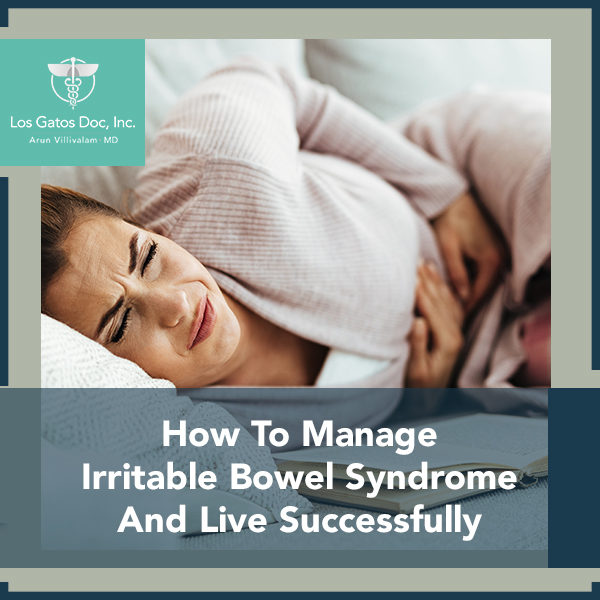Do you suffer from stabbing stomach pains and acute gastric trouble with the frequent need to visit the toilet? If these prevent you from making any long travel plans and cause anxiety and stress, then you could suffer from Irritable Bowel Syndrome (IBS).
It’s difficult to live with IBS as it affects your daily life. It can also be difficult to diagnose the disease.
What is Irritable Bowel Syndrome?
Irritable bowel syndrome (IBS) is a common but lifelong gastrointestinal disorder that affects the large intestine.
Our gut or the digestive system is like our brains with its own set of nerves and hence called the second brain. Also, our brain controls the gut functions via nerves and hormones.
IBS is responsible for the abnormal interactions between your brain and gut, making your digestive system highly sensitive, which alters its functioning as well. If you have IBS, then your colon muscle contracts more than in people without the condition, causing stomach cramps and pain. You will also have lower pain tolerance and excess bacteria in the GI tract, leading to more IBS symptoms.
There are different kinds of IBS based on the bowel movements you experience.
- IBS with constipation (IBS-C)
- IBS with diarrhea (IBS-D)
- IBS with mixed bowel habits (IBS-M)
While IBS is a lifelong disease, it is not fatal. Having IBS does not mean you will develop chronic gastrointestinal conditions such as colitis, Crohn’s disease, or colon cancer.
If you’re a woman, or under the age of 50 years, or have a family history of IBS, or suffer from mental health issues, then you could be at a higher risk for IBS.
Symptoms and Causes
Irritable bowel syndrome (IBS) is not just another disease. It is unique in the sense that it is a cluster of symptoms that occur at the same time.
IBS is a hard condition to diagnose, as its generic symptoms could mean so many other illnesses. Also, you can have all these symptoms with no visible signs in your digestive tract.
Some common IBS symptoms are:
- Bloating
- Excessive gas
- Diarrhoea
- Constipation
- Repeated stomach pain, cramps and discomfort
Other uncommon IBS symptoms are:
- Nausea
- Tiredness
- Backache
- Flatulence or farting
- Mucus in your poop
- Bowel incontinence
Some days, your symptoms can be worse and you’ll experience flare-ups and some days your symptoms will be mild and you’ll feel much better.
There is no exact known cause for IBS, but a combination of factors can lead to it. Here are some contributing factors:
- Brain-gut dysfunction or miscommunication between nerves in your brain and gut.
- Dysmotility or problems with gastrointestinal motility or muscle contractions in your intestine due to which food passes too slowly or quickly through the GI tract.
- Visceral hypersensitivity or oversensitive nerves and nerve abnormalities in your gut or GI tract.
- Severe infection such as gastroenteritis and bacterial overgrowth in the intestine.
- Changes in the gut microbes, i.e. the bacteria, virus, and fungi that live in your intestines.
- Irritable bowel syndrome is not a fatal disease, but it comes with its own complications, including a poor quality of life, mental health issues and chronic bowel problems such as constipation or diarrhea, which can cause hemorrhoids.
It’s why you need to learn the management techniques to tide through the IBS symptoms flare-ups and live a better quality of life.
Preventive Tips To Relieve Irritable Bowel Syndrome
There’s no cure for Irritable Bowel Syndrome. The goal is to control and manage symptoms with a combination of treatment options.
IBS is a chronic care condition and living with it is a long-term challenge. But there are many ways you can manage the condition effectively and let it not affect your daily life.
- Know Your Triggers
You need to know the triggers of your IBS condition that can disturb the communication pathways between your brain and gut.
Knowing your triggers for the IBS symptoms can help you manage the condition better.
Maybe when you’re stressed, your symptoms flare-up. Or when you have certain foods or drinks or medications, your IBS symptoms become worse. If you’re a woman, you might notice that your IBS symptoms can flare up during your periods or when your body is experiencing hormonal changes. These triggers can differ for every individual.
Keeping a diary to note down the observations of your IBS triggers and symptoms will help you record the most minute details. It will also help your doctor to recommend the best treatment option for you.
- Follow A Diet Specific For Your IBS Condition
Having fiber-rich foods can help relieve the IBS symptoms.
If you have diarrhea, have soluble fiber foods such as oats and peas, which dissolve in water and break down into a gel-like substance in your stomach.
If you have constipation, then have insoluble fiber foods such as whole grains, fruits and nuts, which do not dissolve in water and move quickly down the gastrointestinal tract. Having lots of water will help relieve your symptoms.
Spicy, high-fat and processed foods can upset some stomachs and probiotic foods can help relieve some IBS symptoms.
Having fresh homemade meals is the best option. Chew your food slowly and mindfully. Have smaller meals throughout the day. Limit your caffeine, alcohol and carbonated beverages intake.
Dairy products can make your IBS symptoms worse. You can switch to soy, almond or rice-based products. You can also get your calcium from other non-dairy food sources, such as spinach and broccoli.
Talk to your doctor about the low FODMAP diet for relieving IBS symptoms.
Fodmaps stand for “fermentable oligo-, di-, monosaccharides and polyols”, short-chain carbohydrates that are difficult to digest. A few examples of fodmaps are fructose found in fruits and vegetables, lactose found in dairy products and galactans, found in beans.
Fodmaps move to your intestine instead of being absorbed into your bloodstream during the digestion process. The gut bacteria in your intestine use the carbohydrates to produce hydrogen gas, causing the IBS symptoms.
- Maintain A Healthy Lifestyle
Exercise can help manage your IBS symptoms. Exercise forms like Yoga can help stretch your stomach and relieve symptoms.
But any form of exercise done regularly, around 30 minutes daily for 5 days in a week, will help you. Stay away from unhealthy habits like smoking and have good sleep habits.
- Manage Stress
IBS is a condition that occurs because of the disturbance between your brain and gut. A stressed mind will affect the gut, triggering IBS. Stress promotes the production of unhealthy bacteria, inflammatory cytokine proteins, causing inflammation and food intolerances.
Prioritize relaxation time in the day. It could be meditation, reading, cooking, walking, or any activity that distresses you.
- Get A Customized Treatment Plan From Your Doctor
Everyone has different IBS symptoms, and there is no one treatment option or plan. A combination of treatment options that is customized based on your IBS type condition will have to be charted by your primary care doctor. It could involve diet and lifestyle changes with or without therapy and medications.
Pay close attention if you have the following symptoms as it could indicate a more serious condition and you will need an urgent appointment with your doctor.
- Fever
- Pale skin
- Vomiting
- Weight loss
- Severe persistent pain
- Palpitations
- Rectal bleeding
- Bloody diarrhea
- Shortness of breath
- Difficulty swallowing
- Iron deficiency anemia
- A hard lump or swelling in your tummy
Final Thoughts
IBS may not have a cure, but it is not fatal and can be easily managed with a customized treatment plan.
Book an appointment with us to find the best IBS treatment plan that works for you.






